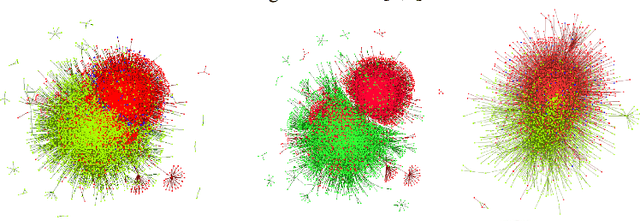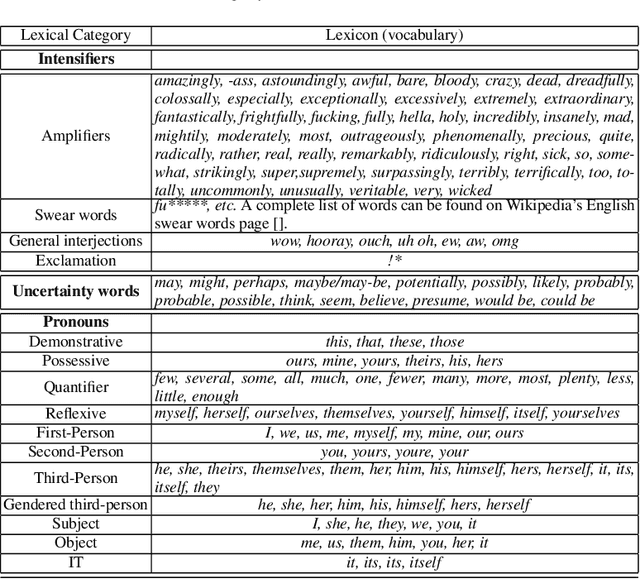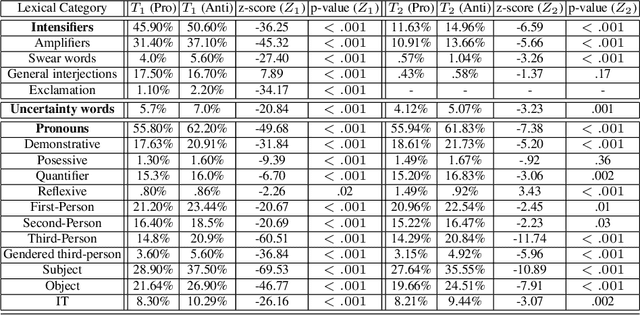Characterizing Sociolinguistic Variation in the Competing Vaccination Communities
Paper and Code
Jul 01, 2020



Public health practitioners and policy makers grapple with the challenge of devising effective message-based interventions for debunking public health misinformation in cyber communities. "Framing" and "personalization" of the message is one of the key features for devising a persuasive messaging strategy. For an effective health communication, it is imperative to focus on "preference-based framing" where the preferences of the target sub-community are taken into consideration. To achieve that, it is important to understand and hence characterize the target sub-communities in terms of their social interactions. In the context of health-related misinformation, vaccination remains to be the most prevalent topic of discord. Hence, in this paper, we conduct a sociolinguistic analysis of the two competing vaccination communities on Twitter: "pro-vaxxers" or individuals who believe in the effectiveness of vaccinations, and "anti-vaxxers" or individuals who are opposed to vaccinations. Our data analysis show significant linguistic variation between the two communities in terms of their usage of linguistic intensifiers, pronouns, and uncertainty words. Our network-level analysis show significant differences between the two communities in terms of their network density, echo-chamberness, and the EI index. We hypothesize that these sociolinguistic differences can be used as proxies to characterize and understand these communities to devise better message interventions.
 Add to Chrome
Add to Chrome Add to Firefox
Add to Firefox Add to Edge
Add to Edge